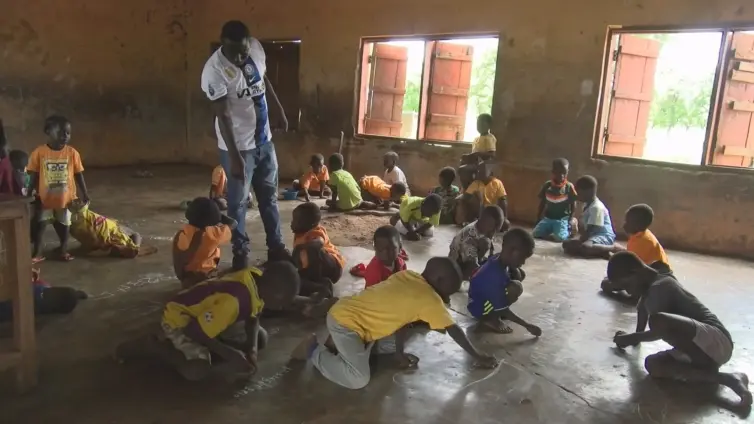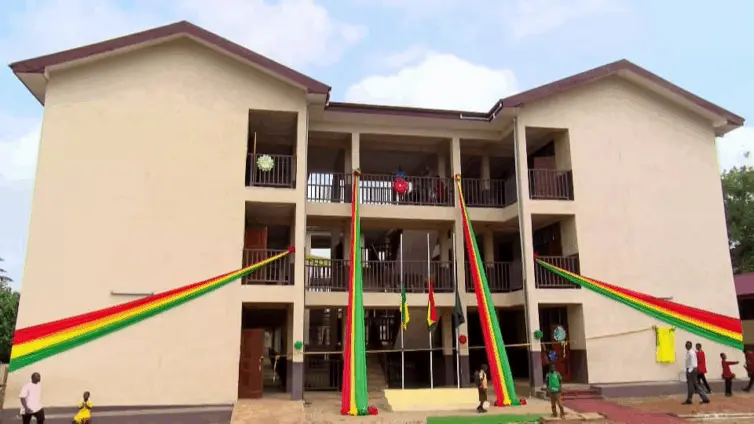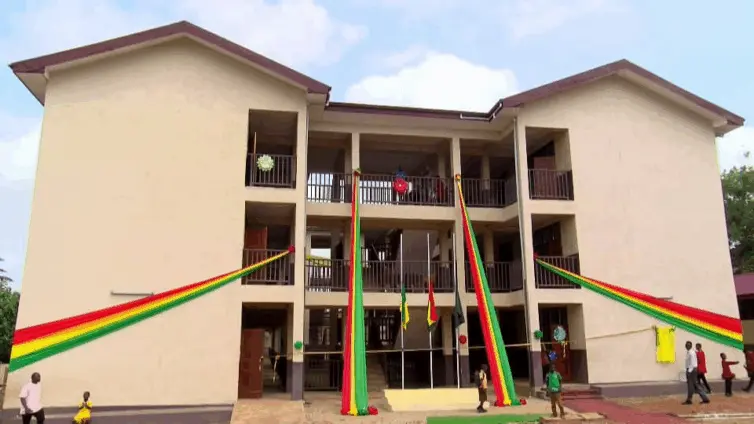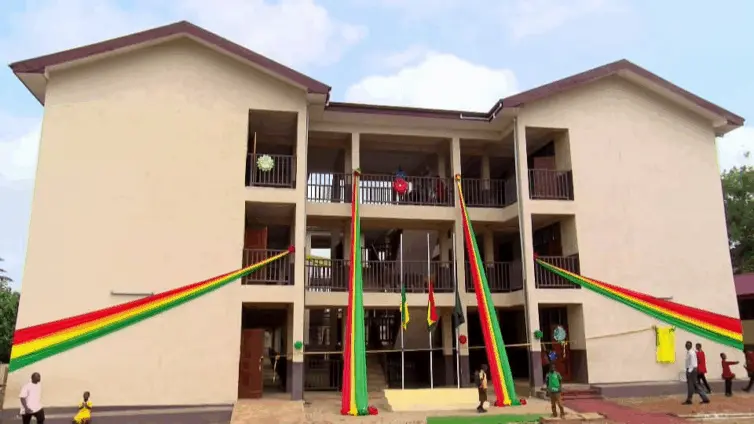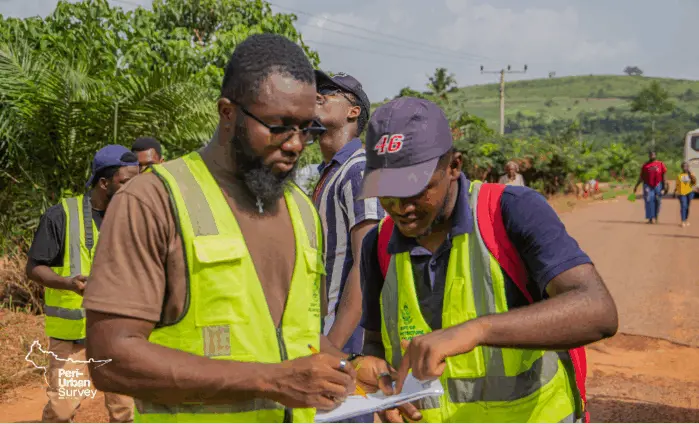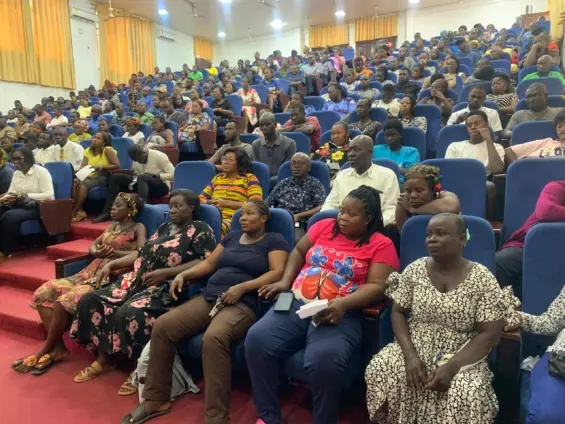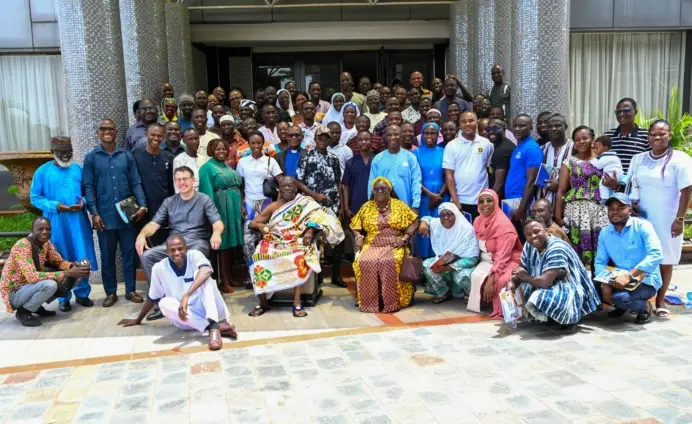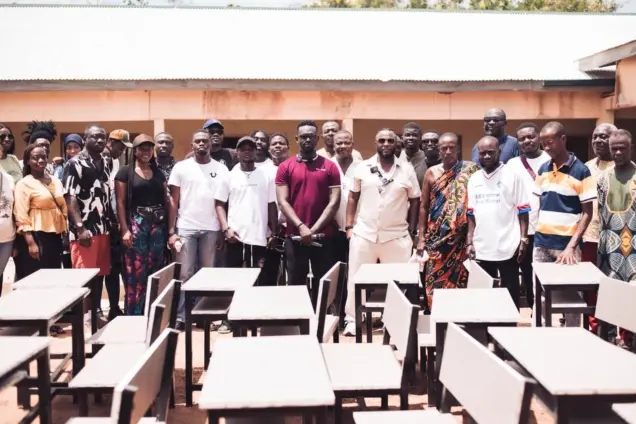The day a goat gave birth in their classroom is a day pupils of Jinlo will not forget anytime soon. The shocking scene – bloodstains on the floor, animal droppings scattered about – was just another stark reminder of the unsanitary school conditions they endure daily. Jinlo, a small community in rural Ghana, is home to a school that lacks even the most basic necessities. Desks and chairs are a luxury, forcing students to sit on the bare floor, a situation that epitomizes the crisis in neglected rural schools, as highlighted in the ‘Crumbling Start’ education series. This is the reality for the children of Jinlo school.
“This is how the children sit – on the bare floor. Sometimes, I sit down with them,” said Abu Halilu, a teacher at the school. The goat incident underscored the daily challenges faced by students and teachers alike. It was not an isolated incident; rather, it was a symptom of a larger problem of neglect and decay.
The situation extends beyond the classrooms themselves. The room used for book storage is overwhelmed by an unbearable smell – a potent mix of rat urine, faeces, and rainwater. This toxic environment makes it difficult for students to breathe and concentrate, creating a learning environment that is not only uncomfortable but also detrimental to their health and academic performance.
For the Junior High School pupils, the situation is equally dire. Forms 1, 2, and 3 are crammed into a makeshift shed, separated only by a single whiteboard. This offers little in the way of acoustic separation, and when it rains, classes are frequently canceled.
“When it rains, we close the school,” said Ziblila Mohammad, Headteacher of Jinlo JHS. “Noise from outside disrupts learning. One shout, one car horn, and attention is gone. Our enrollment is dropping – only two pupils were promoted to JHS this year.”
The noise and distractions make effective teaching and learning nearly impossible, contributing to declining enrollment rates at the Jinlo school. The already compromised education is further strained by the need to combine multiple grade levels in a single classroom due to the limited number of available spaces. This overcrowding adds to the teachers’ workload and dilutes the quality of education that can be provided to each student.
“We’ve had no renovation since the school was built in 2000,” added Abdul Rahaman Yakubu, Headteacher of the primary school. “Several high-profile visits have yielded nothing but paperwork.” The repeated appeals to the local government for assistance have largely gone unanswered, leaving teachers and the community feeling abandoned and frustrated.
“This is not a place any Minister or MP would want their child to be in,” Abu Halilu said. “But these children, they also have dreams. If help doesn’t come soon, their future is at risk.”
The unsanitary school conditions, the lack of resources, and the overall state of disrepair are severely impacting the education and futures of the pupils at Jinlo school. The story of Jinlo reflects a wider problem of neglected rural schools across Ghana, a problem that demands urgent attention and action. The ‘Crumbling Start’ series highlights the critical need for investment in rural education to provide all children with a fair chance at success.
Image Source: MYJOYONLINE

